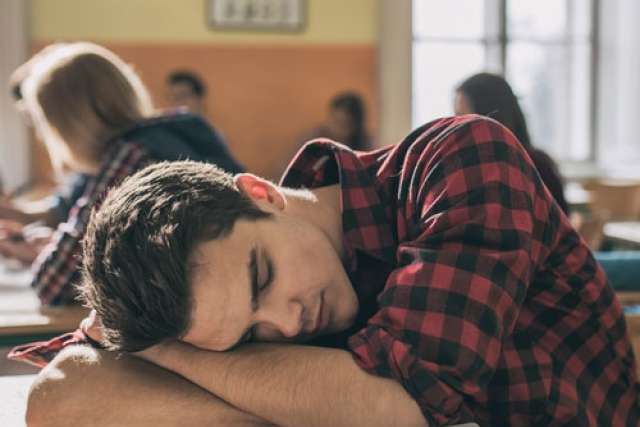Sleep experts say that about one-third of our day should be spent sleeping so the remaining hours can be as productive as possible. And according to Douglas Li, MD, a UCLA pediatric pulmonologist, adequate sleep is especially critical for adolescents.
“What I want people to understand is that sleep is a necessity, not a luxury. You just can’t function without it,” says Dr. Li. “The importance is multiplied in teenagers because of their active brain development.”
In teenagers, lack of sleep can lead to memory and mood problems and an inability to focus, says Dr. Li. For some teens, it can also be linked to hyperactivity. “While it can be tricky for teens to get enough sleep due to their full schedules, we must emphasize the critical role that sleep plays,” says Dr. Li.
Sleep debts are tough to repay
Around puberty, the body’s natural time clock shifts. Teens will want to go to bed a few hours later than they did before and wake up later. But because they need to be up for school, their total sleep time is reduced.
Most teens deal with this by catching up on sleep on the weekends – but that doesn’t always work. “When we sleep, we enter different sleep stages throughout the night. We need all these sleep stages to function properly,” says Dr. Li. “When teens lose out on sleep during the week, they may not be able to get them all back with the extra weekend hours.”
In other words, they accumulate a sleep debt during the week and aren’t able to pay it back completely on the weekend.
Healthy sleep habits
For teens who have trouble falling asleep earlier, the goal is to try and modify their internal clocks. This helps them wake up earlier to accommodate an early school start.
“Most kids can tell me what time they would ideally sleep and then wake up,” Dr. Li says. “So, using their ideal sleep duration as a baseline, I tell the kids and the parents to begin moving the bedtime earlier by 15 minutes each day until they get their desired total sleep time.”
To promote better sleeping habits, Dr. Li recommends the following tips:
- Limit daytime naps to less than one hour.
- Don’t oversleep on the weekends by more than two hours.
- Avoid caffeine or sugary drinks after 4 pm.
- Avoid exercising close to bedtime.
- Avoid fatty, unhealthy foods that may cause heartburn.
- Limit use of screens before bedtime: Turning off electronic devices one to two hours before bedtime is ideal, but even 30 minutes of no-screen time can help prepare you for better sleep.
- Use the bed only for sleep. Avoid reading or watching TV in bed.
- Don’t stay in bed if you aren’t sleeping; instead, get out of bed, do something non-stimulating and return when you feel sleepy again, ideally within 15 to 30 minutes.
- Cue your brain for sleep with a routine that includes soft lighting, calming music or white noise.
If your teen needs sleep support, contact your primary care doctor or the UCLA Division of Pediatric Pulmonology and Sleep Medicine at 310-825-0867. Sleep specialists provide support for newborns through young adults in Westwood and Santa Monica.



